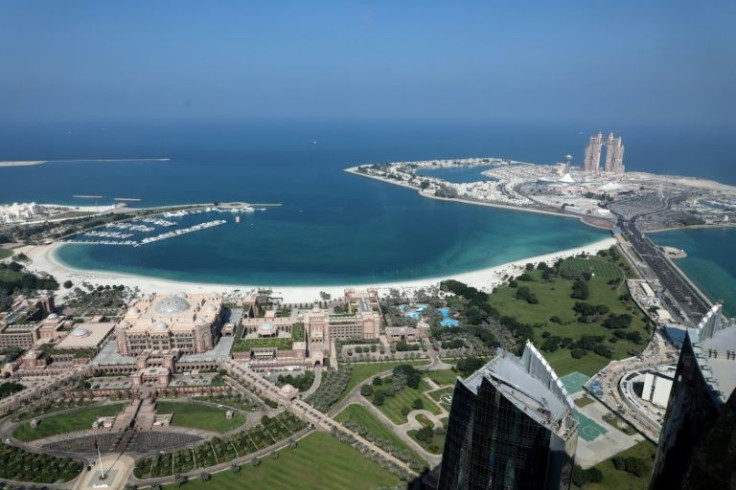The War Between Saudi-Led Coalition And Yemen’s Houthi Rebels Explained

Six years into the Yemen war and the loss of tens of thousands of innocent Yemenis, the Saudi-led coalition which backs Yemen's internationally recognized government against the Houthis in the civil war, is going for tit-for-tat.
The war has become free for all as warplanes target both civilians and combatants alike, destroying civilian infrastructures such as hospitals, water treatment plants, food production facilities, and the cranes used for unloading food at ports and airports.
As the conflict in the Middle Eastern nation has turned into what the UN calls the "world's worst humanitarian crisis" the spillover effects are being felt in the neighboring nations like the United Arab Emirates (UAE), where the Iran-backed Houthis managed to conduct a blast to claim three lives Jan. 17 . The UAE had vowed reprisals.
The first deadly assault by the Houthi rebels on Emirati soil since 2018 saw two Indians and a Pakistani working in an oil company breathing their last and a major fire near a construction site at the capital Abu Dhabi airport.
In retaliation, the Saudi-led coalition, which is fighting to restore the government of Yemeni President Abdrabbuh Mansur Hadi, who the Houthis toppled the year before, launched airstrikes targeting the rebel-held capital Sanaa Jan. 18.
"In response to the threat and military necessity, airstrikes began on Sana'a," Saudi Arabia's said on Twitter.
The coalition forces, in which the UAE is a part, recently inflicted a significant blow to the rebels by recapturing three districts in Shabwa governorate. The rebels attacked the UAE to retaliate and often threaten to target Abu Dhabi and Dubai, the gleaming crown jewels of the UAE.
The UAE joined the coalition before announcing a change of tack in 2019 and shares no borders with Yemen, unlike Saudi Arabia. There also appeared to have long been a strategy by the Houthis not to target the UAE.
But that has changed now. The UAE is reported to have beefed up its military activities in support of Saudi Arabia's war in Yemen. The qualitative military operation by the rebels in Abu Dhabi came after the UAE played a pivotal role in deploying southern Yemeni forces to the Shabwa governorate.
The Giants Brigades, led by South Arabia, along with official Yemeni government forces, are now advancing into areas held by the Houthis, who till recently enjoyed an upper hand, in al-Bayda and Marib governorates.
The new flare-up takes place two weeks after the Houthis hijacked a UAE-flagged ship with an 11-member crew off the Red Sea port of Hodeidah Jan. 3.
The rebels have turned down a UN Security Council demand for the immediate release of the ship's, saying it was "not carrying... toys for children but weapons for extremists."
Saudi Arabia has long accused Iran of arming up the Houthis with sophisticated weapons and its Hezbollah proxy of training the rebels. Iran, however, denies the charges.
According to the Saudi-led coalition, the Houthi rebels had fired 430 ballistic missiles and 851 armed drones at Saudi Arabia since the war began in 2015, claiming the lives of 59 Saudi civilians.
The UN reports that there have been a staggering 23,000 airstrikes since the coalition intervened in Yemen in 2015. That's an average of 10 airstrikes each day over six years. Aid agencies said that the death toll reached 377,000 by the end of 2021.
The coalition has intensified its air raids on Sanaa, targeting the capital airport, where operations have come to a grinding halt because of a Saudi-led blockade since August 2016, with exemptions for aid flights.
Saudi Arabia has been under pressure from the international community to lift a blockade on Yemen ports and Sanaa airport, which largely contributed to the world's worse humanitarian crisis.
Lifting the blockade has been a condition by the Houthis to kickstart the ceasefire talks as the country historically imports 85 percent of its food and medicine.
Saudi Arabia is estimated to have spent $100 billion on the war in poverty-stricken Yemen while Iran has shelled out $20 million to support the Houthi rebels.
On Feb. 4 last year, President Biden pledged that the US, a silent partner to the multi-sided conflict, would immediately end support for "offensive operations" in Yemen.
But the war that is being fought on several fronts has gathered more steam.





